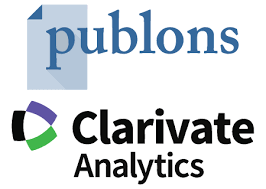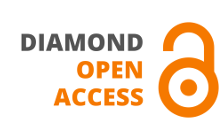Quel rôle pour la crypto monnaie pour la réussite d’une inclusion financière dans les pays en développement
DOI :
https://doi.org/10.59051/joaf.v15i2.897Mots-clés :
Fintech, Blockchain, Inclusion financière, Crypto-monnaieRésumé
Objectif : Déterminer comment les crypto-monnaies peuvent promouvoir l'inclusion financière dans les pays en développement.
Méthode : L'étude adopte une analyse statistique pour identifier les relations de cause à effet entre les différentes variables liées à l'inclusion financière et aux crypto-monnaies, ainsi qu'une étude comparative des expériences des pays développés ayant réussi à intégrer les crypto-monnaies dans leurs systèmes financiers tout en améliorant l'inclusion financière.
Résultats : Proposition d'un schéma permettant la réussite d'une inclusion financière à l'aide des crypto-monnaies.
Originalité/pertinence : L'originalité de cette étude réside dans l'intégration des crypto-monnaies dans un système plus large et coordonné pour promouvoir l'inclusion financière, une perspective particulièrement pertinente dans le contexte actuel des pays en développement cherchant des solutions innovantes.
Téléchargements
Références
ABBASI, K.A., ALAM DU, M.A., HUYNH, T.L.D., 2021, « FinTech, SME efficiency and national culture : evidence from OECD countries », Technological Forecasting and Social Change, vol. 163, pp. 120-134. https://doi.org/10.1016/j.techfore.2020.120454
AGARWAL, S., CHUA, Y.H., 2020, « FinTech and household finance : a review of the empirical literature », China Finance Review International, vol. 10, n° 4, pp. 361-376. https://doi.org/10.1108/CFRI-03-2020-0024
BÉZES, C., ELABIDI, H., 2023, « Fintechs in their own words », Management & Avenir, vol. 134, pp. 105-124. https://doi.org/10.3917/mav.134.0105
BÖMER, M., MAXIN, H., 2018, « Why Fintechs cooperate with banks – Evidence from Germany », ZVersWiss, vol. 107, n° 5, pp. 359-386. https://doi.org/10.1007/s12297-018-0421-6
BOURNE, C., 2020, « Fintech’s Transparency–Publicity Nexus: Value Co-creation Through Transparency Discourses in Business-to-Business Digital Marketing », American Behavioral Scientist, vol. 64, n° 11, pp. 1607-1626. https://doi.org/10.1177/0002764220959385
BUCKLEY, R., BARBERIS, J.N., ROSS, P., AMER, D., 2016, « The Evolution of Fintech : A New Post-Crisis Paradigm? », SSRN Electronic Journal, vol. 47, pp. 1271-1319. https://dx.doi.org/10.2139/ssrn.2676553
DE FILIPPI, P., 2022, Blockchain et cryptomonnaies, Presses Universitaires de France.
DI PIERRO, M., 2017, « What is the blockchain ? », Computing in Science & Engineering, vol. 19, n° 5, pp. 92-95. https://doi.org/10.1109/MCSE.2017.3421554
DUCAS, E., WILNER, A., 2017, « Les implications sécuritaires et financières des technologies blockchain : Réglementer les technologies émergentes au Canada », Revue internationale, vol. 72, n° 4, pp. 538-562. http://dx.doi.org/10.1177/0020702017741909
EL ATTAR, A., ZERIOUH, R., 2019, « Crowdfunding, inclusion financière et réduction des inégalités sociales », Dossiers de Recherches en Économie et Gestion, vol. 7, n° 2, pp. 31-54. https://doi.org/10.34874/IMIST.PRSM/doreg-v7i2.15706
EL BOUHADI, A., 2020, « Introduction générale ». Dans M. BENALI & A. EL BOUHADI (Dir.), Accès aux services financiers, inclusion et durabilité économique en Afrique, pp. 19-28. Paris : L'Harmattan.
FAR, S.B., RAD, A.I., ASAAR, M.R., 2023, « Blockchain and its derived technologies shape the future generation of digital businesses : a focus on decentralized finance and the Metaverse », Data Science and Management, vol. 6, n° 3, pp. 183-197. https://doi.org/10.1016/j.dsm.2023.06.002
FINANCIAL STABILITY BOARD, 2017, « Financial stability implications from FinTech : supervisory and regulatory issues that merit authorities’ attention », [PDF], https://www.fsb.org/wp-content/uploads/P011117.pdf
FULLER, D., MELLOR, M., 2008, « Banking for the poor: addressing the needs of financially excluded communities in Newcastle upon Tyne », Urban Studies, vol. 45, n° 7, pp. 1505-1524. http://dx.doi.org/10.1177/0042098008090686
GAI, K., QIU, M., SUN, X., 2018, « Une enquête sur la FinTech », Journal of Network and Computer Applications, vol. 103, pp. 262-273. https://doi.org/10.1016/j.jnca.2017.10.011
GUÉRINEAU, S., JACOLIN, L., 2014, « L’inclusion financière en Afrique subsaharienne : faits stylisés et déterminants », Revue d’économie financière, vol. 116, pp. 57-80. https://doi.org/10.3917/ecofi.116.0057
HAMDAN, A., ALDHAEN, E.S. (Eds.), 2023, Artificial Intelligence and Transforming Digital Marketing, vol. 487, Springer Nature.
HENDRIKSE, R., VAN MEETEREN, M., BASSENS, D., 2020, « Strategic coupling between finance, technology and the state : Cultivating a Fintech ecosystem for incumbent finance », Economy and Space, vol. 52, n° 8, pp. 1516-1538. https://doi.org/10.1177/0308518X19887967
IMAN, N., 2020, « The rise and rise of financial technology: The good, the bad, and the verdict », Cogent Business & Management, vol. 7, n° 1, Article ID: 1-17. https://doi.org/10.1080/23311975.2020.1725309
KANGA, D., OUGHTON, C., HARRIS, L., MURINDE, V., 2022, « The diffusion of fintech, financial inclusion and income per capita », The European Journal of Finance, vol. 28, n° 1, pp. 108-136. https://doi.org/10.1080/1351847X.2021.1945646
KLING, G., PESQUÉ-CELA, V., TIAN, L., LUO, D., 2022, « A theory of financial inclusion and income inequality », The European Journal of Finance, vol. 28, n° 1, pp. 137-157. https://doi.org/10.1080/1351847X.2020.1792960
KONE, R., 2019, « Chapitre 1 : L’importance du problème de l’inclusion financière ». Dans R. KONE (Dir.), Accélérer l'inclusion financière dans les pays africains : Nouvelles approches des stratégies d'inclusion financière, pp. 18-34. Caen : EMS Editions.
KREUTZER, R.T., 2018, Praxisorientiertes online-marketing, Wiesbaden : Springer Fachmedien Wiesbaden.
LEYSHON, A., THRIFT, N., 1995, « Geographies of financial exclusion : financial abandonment in Britain and the United States », Transactions of the Institute of British Geographers, vol. 20, pp. 312-341. https://doi.org/10.2307/622654
MBAYÉ, A.N., 2023, « L’inclusion financière face au gouffre de la pauvreté et de l’exclusion », International Journal of Accounting, Finance, Auditing Management and Economics, vol. 4, n° 2-1, pp. 48-68. https://doi.org/10.5281/zenodo.7785942
MICU, I., MICU, A., 2016, « Financial technology (Fintech) and its implementation on the Romanian non-banking capital market », SEA-Practical Application of Science, vol. 11, pp. 32-54.
MILIAN, E.Z., SPINOLA, M.M., DE CARVALHO, M.M., 2019, « Fintechs : A literature review and research agenda », Electronic Commerce Research and Applications, vol. 34, pp. 1-21. http://dx.doi.org/10.1016/j.elerap.2019.100833
MOUZOUN, Z., AMMI, A., 2023, « Les répercussions de l’exclusion financière au Maroc sur l’environnement : analyse à travers l’application de la théorie enracinée », In SHS Web of Conferences, vol. 175, 01035. https://doi.org/10.1051/shsconf/202317501035
MUGANYI, T., YAN, L., YIN, Y., SUN, H., GONG, X., TAGHIZADEH-HESARY, F., 2022, « Fintech, regtech, and financial development: evidence from China », Financial Innovation, vol. 8, n° 1, pp. 1-20. https://doi.org/10.1186/s40854-021-00313-6
NAKAMOTO, S., 2008, « Bitcoin : A peer-to-peer electronic cash system », Decentralized Business Review.
NSIAH, A.Y., YUSIF, H., TWENEBOAH, G., AGYEI, K., BAIDOO, S.T., 2021, « The effect of financial inclusion on poverty reduction in Sub-Sahara Africa: Does threshold matter? », Cogent Social Sciences, vol. 7, n° 1, Article ID: 1903138. http://dx.doi.org/10.1080/23311886.2021.1903138
PERIN, G., DYTZ, J.P.B., SATO, L., YOUSIF, N.M., 2022, « L’état de la protection sociale des travailleurs ».
PETRALIA, K., PHILIPPON, T., RICE, T., VÉRON, N., 2019, « Banking Disrupted? Financial Intermediation in an Era of Transformational Technology », Geneva Reports on the World Economy, International Center for Monetary and Banking Studies, pp. 1-117.
SERVET, J.M., 2010, « L'absence de prise en compte de l'exclusion financière : une erreur conceptuelle de définition de la pauvreté dans les OMD », Revue d'Economie et de Management, vol. 9, n° 1, pp. 36-51.
TAJ, T., 2023, « Blockchain Technology for Audit Firms: Perspectives and Challenges ». In International Conference on Digital Technologies and Applications, pp. 181-190. Cham : Springer Nature Switzerland. https://doi.org/10.1007/978-3-031-29860-8_19
UMAMAHAESWARI, B., MITRA, P., AGRAWAL, S., KUMAWAT, V., 2023, « Impact of Cryptocurrency on Global Economy and Its Influence on Indian Economy », In International Conference On Emerging Trends In Expert Applications & Security, pp. 433-446. Singapore : Springer Nature Singapore. https://doi.org/10.1007/978-981-99-1909-3_38
VASILIEVA, T., LUKANOVA, K., 2016, « Commercial banks and fintech companies in the digital transformation : challenges for the future », Journal of Business Management, vol. 11, pp. 25-33.
Téléchargements
Publié
Numéro
Rubrique
Licence
© Chiraz Merouani, Mohand Akli OUGHLISSI, Hocine Ifourah, Moussa Maamri 2024

Cette œuvre est sous licence Creative Commons Attribution - Pas d'Utilisation Commerciale - Pas de Modification 4.0 International.
Les auteurs qui publient dans cette revue acceptent les termes suivants :
- Les auteurs conservent le droit d'auteur et accordent à la revue le droit de première publication, l'ouvrage étant alors disponible simultanément, sous la licence Licence d’attribution Creative Commons permettant à d'autres de partager l'ouvrage tout en en reconnaissant la paternité et la publication initiale dans cette revue.
- Les auteurs peuvent conclure des ententes contractuelles additionnelles et séparées pour la diffusion non exclusive de la version imprimée de l'ouvrage par la revue (par ex., le dépôt institutionnel ou la publication dans un livre), accompagné d'une mention reconnaissant sa publication initiale dans cette revue.
- Les auteurs ont le droit et sont encouragés à publier leur ouvrage en ligne (par ex., dans un dépôt institutionnel ou sur le site Web d'une institution) avant et pendant le processus de soumission, car cela peut mener à des échanges fructueux ainsi qu'à un nombre plus important, plus rapidement, de références à l’ouvrage publié (Voir The Effect of Open Access).






















